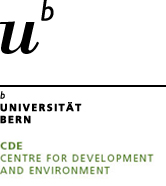“Sustainability doesn’t come free”
On 7 March, the Swiss will vote on the EFTA trade agreement with Indonesia. The agreement is controversial due to the issue of palm oil – but it also bears something new: it is the first trade agreement with Switzerland that makes tariff reductions for imports contingent on compliance with principles of sustainability. In this case, however, the provision only applies to palm oil. What does this trade agreement achieve with regard to sustainability? And what does it miss? Trade and sustainability law expert at CDE, Elisabeth Bürgi Bonanomi, explains the pros and cons.

Interview: Gaby Allheilig
Elisabeth Bürgi, in your research you’ve long been examining how to effectively address sustainability in trade agreements. Are you satisfied with the agreement that the EFTA – and hence Switzerland – has negotiated with Indonesia?
Trade agreements always comprise a comprehensive package of rules and market concessions. These should be analysed individually from a sustainability perspective. To date, only the agreed provisions on imports of Indonesian palm oil have been discussed publicly. What is new is that the tariff concessions granted – reduced tariffs for palm oil imports up to 12,500 tonnes and zero tariffs for palm oil processed here and re-exported – have been directly linked to sustainability criteria.
________________________________________________________________________________
“The newly chosen path should be welcomed from the perspective of sustainability”
________________________________________________________________________________
This goes beyond the typical promises of upholding environmental and social standards that are usually included in sustainability chapters. This time, improved market access is tied directly to sustainability requirements. This can be very effective if it’s properly implemented. The fact that the parties to the agreement have chosen this new path should be welcomed from the perspective of sustainability.
_______________________________________________
“Reference to certificates is not enough”
_______________________________________________
In Indonesia, fundamental human rights and environmental standards are violated to produce palm oil. How realistic is it to implement human and environmental rights through trade agreements?
There are efforts in Indonesia, too, to make palm oil production more ecologically and socially acceptable. But these are resource-intensive transition processes that require collaboration with local people. Indeed, the criticized palm oil plantations are the consequence of large land use changes across entire regions. Mere reference to certificates, as made in the draft ordinance on implementation of the agreement, is not enough.
So what is needed?
The chosen approach – linking tariff preferences to sustainability requirements – is only effective when it also helps to intensify and expand the necessary transition processes. The EFTA countries of Norway, Iceland, Liechtenstein, and Switzerland – all financially strong countries – have promised in the agreement to provide Indonesia with technical and financial assistance in this area. Unfortunately, so far, this assistance has not been quantified – whether in the agreement, in Switzerland’s implementation ordinance, or in the accompanying explanatory report. This would need to be remedied.
________________________________________________________
“Small beginnings can bring about great things”
________________________________________________________
Indonesia’s most important trade partners are the ASEAN countries of China and Japan. The EFTA, including Switzerland, is a relatively small player.
Yes, that’s true, but the EFTA countries have a high purchasing power. Besides, the 2030 Agenda calls on all actors to work towards sustainability to the extent possible. If the EFTA countries and Indonesia manage to significantly diversify palm oil production and make it more socially acceptable even in just one specific region, the change will have a ripple effect beyond that region. The approach would be copied by other actors, it would feed into agricultural extension services and teaching, et cetera. Small beginnings can bring about great things.
Are there other advantages of cooperation within the EFTA in terms of ensuring compliance with sustainability standards in Indonesia?
Besides the mentioned support for change in palm oil production, it would be important that the EFTA countries jointly evaluate the impacts of the agreement after several years. So far, no such ex post evaluation is planned. But it would be key to assess whether the chosen approach was effective or whether its implementation needs to be improved. That’s the only way to ensure that the idea isn’t squandered and we continue on the right track.
__________________________________________________________________________________
“The sustainability criteria could very well be debated by the arbitration panel”
__________________________________________________________________________________
Opponents of the trade agreement with Indonesia argue, among other things, that the chapter on sustainability – and thus the provisions on palm oil – are exempt from arbitration and thus from the possibility of effective sanctions. How do you see it?
Indeed, violation of the chapter on sustainability cannot be brought before the arbitration panel according to the agreement. However, the requirement that imported palm oil be produced sustainably is part of the chapter on trade in goods. That makes it entirely possible to appeal to the arbitration panel on this point. However, only Switzerland as a country can do this – not private parties.
When might this be the case?
If Switzerland were to conclude that the palm oil slated for import wasn’t really produced sustainably, it could refuse to apply the lower tariffs. In this case, Indonesia could appeal to the arbitration panel to enforce the tariff concessions. The panel would then have to determine whether the requirements were met. But appealing to the arbitration panel would only be a last resort; the initial focus is on a partnership-oriented approach. Indonesia has approved the sustainability requirements and is prepared to follow this path with the help of the EFTA countries. But most likely it will also demand the promised financial and technical assistance.
________________________________________________________________________________
“Similar provisions would also be appropriate for soy and meat in the Mercosur agreement”
________________________________________________________________________________
What are the chances that Switzerland will also directly link sustainability criteria to market concessions in other trade agreements currently under negation, such as with Mercosur or Malaysia?
The EFTA negotiations with the Mercosur countries Argentina, Brazil, Uruguay, and Paraguay are concluded, but the text of the agreement is not yet public. Based on the information to date, there are no such links, though they would have been appropriate especially in the case of soy and meat. But the Mercosur countries would probably only agree to such terms if the EFTA countries offered them substantial concessions in other areas.
The same goes for Malaysia: its government would likely only accept such conditions if they get something in return. Sustainability doesn’t come free. This also makes sense in the big picture: if these countries can export both sustainably produced and processed goods more easily, they will create more added value and will be able to gradually reduce their exports of raw commodities.
______________________________________________________________________________
“If human rights or environmental standards are seriously violated, Switzerland can reverse the concessions it has granted”
______________________________________________________________________________
Trade agreements could also be designed in a way that makes it possible to respond to human rights violations generally. But Switzerland has remained very hesitant in this respect, as the agreement with China shows. Does the Indonesia agreement demonstrate progress in this regard?
In bilateral trade agreements, the parties to the agreement generally assert their rights and responsibilities on the basis of WTO law. This is also the case in Art. 1.5 of the Indonesia agreement. As a result, the principle laid down in the General Agreement on Tariffs and Trade (GATT) remains valid, according to which granted concessions can be suspended in the event of serious human rights or environmental violations. This general exception clause is reproduced – in abbreviated form – in Art. 3.16 of the Indonesia agreement. It also applies to areas separate from palm oil production.
What does this mean concretely?
In concrete terms, this means that if Switzerland imports a good whose production involved serious violation of human rights or environmental standards, Switzerland can revoke the concession granted or even stop the imports. This could become relevant with regard to the current situation in West Papua. However, Switzerland has made little use of this right to date. The legal foundation is missing that would specify when the Federal Council should intervene. The proper design of such a law is currently under discussion.
__________________________________________________________
“It’s important to consider landscapes as a whole”
__________________________________________________________
The current debate revolves exclusively around palm oil. Are there other aspects of the agreement that are critical?
It’s problematic that timber and rubber are also being given greater market access without it being made contingent on compliance with sustainability standards. Further, it’s important to consider landscapes as a whole, as research at CDE shows. A sustainable palm oil industry would integrate oil palm crops into the established cultural landscapes. Such diversified systems display high agrobiodiversity and produce a variety of crops. Accordingly, market concessions should be granted for whole “packages” of related products. We refer to this as the “basket approach”. Switzerland’s State Secretariat for Economic Affairs (SECO) already promotes market initiatives that point in this direction, such as “Verified Sourcing Areas”. Links could be established with this.
And otherwise?
As mentioned, all elements of the agreement need to be scrutinized: the rules on intellectual property protection, on recognition of standards, and so on. Here are just two other examples: the agreement opens up more opportunities in the Indonesian market for Swiss financial services providers – regardless of whether they invest sustainably or not, or whether they directly or indirectly help finance the destruction of rainforests. Services, too, could be tied to sustainability criteria. This is still not done enough. Additionally, it would be a welcome development if our trade partner – in this case Indonesia – would also demand sustainability from us in terms of the goods they import from us.
Swiss referendum on trade agreement with Indonesia
In anticipation of the Swiss referendum on 7 March 2021, CDE is periodically publishing facts and scientific insights on palm oil. We seek to shed light on the issues from different angles:
